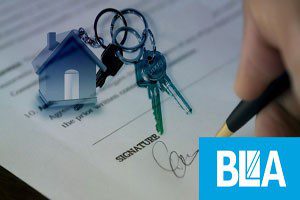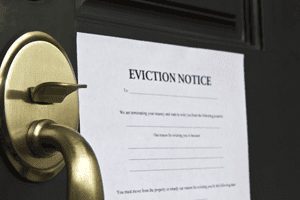How to find my landlords name and address?
Nearly almost all tenancies are in writing; however, the Housing Act 1996 does allow for an oral tenancy.
UK Tenants have a right, by law, to know the name and address of their landlord. Landlords are required by law to provide in writing their name and address. This blog walks you through the steps to find your landlords name and address.
Suppose you have a tenancy agreement the name of the landlord should be contained in the tenancy agreement.
The blog below will tell you how to find landlords contact details and get in touch with them, even when you don’t know where your landlord is.
Finding landlords address facts
- Tenants have a right to know their landlord’s name and address.
- Under the current law, tenants can request their landlord’s contact information from the letting agent or relevant person managing the property.
- When a tenant makes a written request, that person, letting agent or property manager has 21 days to give you the name and address of the landlord.
- The landlord’s address may be their home, their office, or another property they occupy. A landlord is not required to provide their home address if they do not wish to. They must give an address for communication purposes.
- A tenant may find the landlord’s contacts in the tenancy agreement documents, like the tenancy agreement, gas safety certificate, electrical safety report or deposit certificate. If you are receiving Universal Credit, it may be worth contacting them to ascertain the landlord’s address. However, sometimes they may refuse to provide the information due to the data protection regulation.
- Tenants may be able to find their landlords address by searching for your landlord in the local council and HM land registry.
Tenants legal right to know their landlords’ address
Tenants have a right, by law, to know the name and address of their landlord, which can be any address and does not need to be their home address.
The address can be that of the landlord’s agent, such as a solicitor or managing agent.
Where a tenants landlord lives abroad, then there must be an address that is provided to the tenant for an agent in England and Wales.
This information should be provided in your tenancy agreement.
Tenants have the legal right to your landlord’s name and address
Section 48 of the Landlord and Tenant Act 1987 stipulates that rent is not lawfully payable unless the tenant has been provided, in writing, an address in England and Wales at which notices can be served.
Note: If you do withhold rent as per the above Act, do not spend it. All rent will become payable, including any rent arrears, when the information is provided by the landlord or the landlords letting agent.
Some private landlords like to remain anonymous; however, when a tenant makes a written request to the agent or the landlord’s legal representative, they have a right to the landlord’s name and address.
Under Section 1 of the Landlord & Tenant Act, 1985 tenants have an absolute right to request the name and address of their landlord.
If this information landlords address and landlords name has not been provided after 21 days, then the landlords representative is not acting within the law and liable to a fine.
It is important to note, you are only entitled to the landlord’s name and address; the law does not include access to a telephone number, email address or other information.
The landlord’s official address is not required to be the landlord’s residential or private address. It can be any house, building or office that the landlord occupies or uses for any purpose.
If they have another option, the landlord will often choose not to give you their home address to protect their privacy. Landlords are legally entitled to withhold their private address.
Tenants Rights and what the law means
Tenants have a legal right to contact their landlord for purposes of:
- To help mediate with a letting agent
- In case of an emergency
In an emergency, if you need to get hold of your landlord urgently go to the GOV.UK website.
From there, you can find the contact details of your local authority. They will be able to deal with any emergency and then take appropriate steps to find out who your landlord is.
How to find your landlord’s contact details
There are various methods you can find out your landlord’s name and address, such as listed below.
Some sources may refuse to provide you with information due to the Data Protection Act 1988.
To help you section 35 permits an exemption where the information is needed concerning court legal proceedings.
You can quote the following text that will help you obtain the landlord’s name and address that you need, “Personal data is exempt from the non-disclosure provisions where the disclosure is required by or under any enactment, by any rule of law or by order of a court.”
As discussed, if you paid a deposit, then the deposit documents like the deposit Prescribed information may have an address for your landlord.
The Deposit Prescribed information will set out information about the property, landlord, contacts, and deposit protection scheme.
Gas Safety Certificate – If your property has gas, then you must have a valid certificate. The gas safe certificate has to list relevant contact information for the landlord and letting agents.
The Gas engineer on the certificate should have also provided the contact details of your landlord.
- Bank Standing order – if the rent is paid directly to your landlord’s bank account, then they will have the contact details on record.
- Gas, Electricity, Water supply and wastewater – the landlord will have to pay these utilities on any void periods, so you may be able to get the details from one of the utilities.
- Your local Council – the council tax department will have your landlord’s details on their records for when the property is vacant.
The Land Registry – Records will reveal who owns the let property; anyone can download the office copy for a small fee and download the document.
However, the named person on the HM Land registry who owns the land may or may not be your landlord.
When you cannot find your landlord’s name and address
In some rare cases, you may not be successful in obtaining the landlord’s name or address. If an agent, person, or company is acting on their behalf, you might be able to regard them legally as your landlord.
Your local Council may issue your landlord with a fine for withholding information. You should contact them to see if they can help.
Good landlords should not try to evict you if you are trying to contact the landlord because of disrepairs.
Most tenants want to contact the landlord because of disrepairs like mould or problem with the property.
Good landlords have no difficulty maintaining their property to a good standard and will stick to their legal obligations to deal with repairs. Sadly, a few rogue landlords may attempt to evict the tenants, violating the retaliatory eviction legislation.
FAQ
Is My Landlord Registered?
Over 2.5 million buy to let residential landlords in the UK, with each buy to let landlords owning on average 1.8 buy to let properties. The UK market is made of a large number of residential landlords.
Many of those may not be registered. Some parts of the country have made registration mandatory for landlords renting properties out.
All British landlord association Members can obtain free legal advice for any issues regarding their rental properties on 01293 855700. The British Landlord association is a free national association, why not join us today for a free membership!
How to Comply with GDPR – landlord agent Guide 2021
Best Landlords Association to join in 2021?
What is Retaliatory revenge eviction Deregulation Act 2015
How to deal with landlord Tenant harassment | Guide 2021
Disclaimer:
This post is for general use only and is not intended to offer legal, tax, or investment advice; it may be out of date, incorrect, or maybe a guest post. You are required to seek legal advice from a solicitor before acting on anything written hereinabove.





